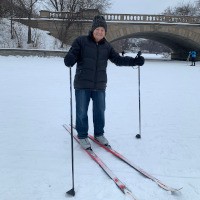
When my mother was in her early 30’s, she realized she wasn’t cut out to be a stay-at-home mom. So she went back to school, got a master’s degree in social work, and began her career as a therapist, a profession and passion that sustained her for the next 45 years.
My mom loved going to work, helping people, earning money, and having an identity apart from her husband and kids. But more than anything, she loved having a sense of purpose.
My mother had never planned on retiring, but after being diagnosed with cognitive impairment at the age of 81, she reluctantly closed down her dwindling practice. Even as her dementia progressed, she continued to mourn the loss of her professional identity and her reason to exist. Fortunately, she’s made great strides this past year, in spite of a rather binary view of “purpose.”
The body-mind connection
There’s plenty of evidence to suggest that a life of purpose is good for our health and overall wellbeing. A study of nearly 7,000 older adults, published in The Journal of the American Medical Association (JAMA), found that having a stronger purpose in life was associated with a lower risk of mortality and cardiovascular events, such as heart attack or stroke. Another study, published by the National Institutes of Health (NIH), reported that purpose in life was associated with fewer emergency room visits and hospital admissions, and lower medical and drug expenses.
A third study, published by the Proceedings of the National Academy of Sciences (PNAS), examined how health, income, cultural involvement, and social relationships affected the wellbeing in adults age 50–90. Their research showed that the biggest factor for happiness is the belief that ones life has purpose.
Fundamental to surviving and thriving
Richard Leider, founder of Inventure: The Purpose Company, author of many books, and a Lifesprk employee, writes that purpose is not a luxury for good times, but is as fundamental and as old as humankind. “Studies now show the role purpose plays in helping ailments ranging from pain and depression to Alzheimer’s and other diseases,” said Leider. “Having a reason to live that’s more important than ourselves–whatever level of adversity we face—is universal and fundamental to surviving and thriving.”
Redefining purpose
So how do we go about finding our unique purpose as we age? For my mom, the first step was to expand her definition of purpose. It’s been a process but she’s slowly warmed up to the idea that enjoying the outdoors, taking care of her aging cat, and feeling loved are pretty good reasons to exist.
According to an article in Psychology Today, it doesn’t really matter what your purpose is, as long as you have one. Among the “paths to purpose” they suggest are:
- Some people find a second career, like driving for Lifesprk Go! or selling crafts on Etsy, while others do volunteer work, like tutoring at an elementary school, preparing meals for people in need, or sewing masks for healthcare workers. Last fall, my mom and I joined a group of volunteers who meet monthly to take care of the flowers and shrubs at a local park.
- Love and friendship. Caring for a sick friend or family member can be deeply fulfilling, as can babysitting the grandchildren. Putting time and energy into friendships—on the phone, virtually, or outside at a safe distance—can also give life meaning.
- Compassion for others. It’s amazing how small acts of kindness can boost our sense of wellbeing: letting someone go ahead at checkout, thanking service workers, or sending a card to someone in your life are just a few simple ways to add spark to life.
- Small joys and pleasures. After my mom’s cataract surgery, she discovered the beauty in sunrises and the colors of the leaves in the fall. She recently went cross-country skiing on Lake of the Isles, an adventure she described as “delicious!” (the photo with this blog is her in that ‘delicious’ moment)
- Exercise. Staying active and healthy is an accomplishment with a great purpose: it makes it easier to keep doing the things you enjoy; it allows you live more independently; and it gives you the strength and energy to help others.
- Creative pursuits. Quilting, sewing, crocheting, drawing, sports, foreign languages, reading, taking a storytelling or acting workshops, attending virtual performances, and when it’s safe, travel, museums, concerts, theater, live sports, and so much more. Many are offering virtual experiences so be sure to check them out, too.
- Contributions to society. Making a difference in the community is a terrific way to find purpose in life. Last fall, several friends participated in get-out-the-vote letter-writing campaigns; a woman at my mom’s facility knits hats and donates the money from her sales to a local food shelf. My mom likes to pick up trash when she’s out walking.
Creating a life plan
“Purpose gives us the will to live—a reason to get up in the morning,” said Richard Leider. If you’re struggling to find your sense of purpose—especially during COVID-19—our Lifesprk team is passionate about helping you find your spark. Reach out to our team and we can align you with the right service to keep the spark and inspire your loved one’s sense of purpose.
To learn more about Lifesprk’s services, schedule a free consultation today.


